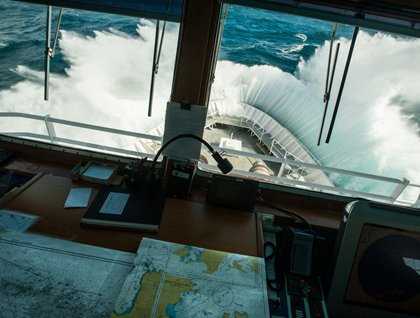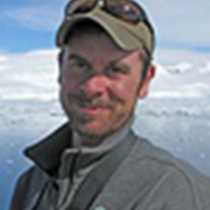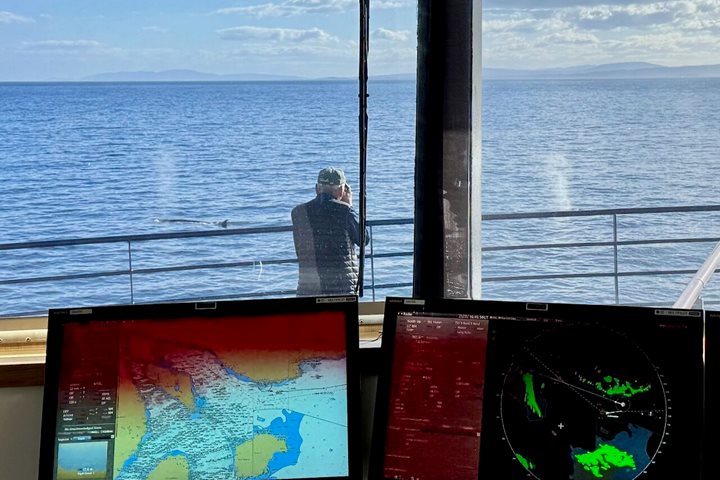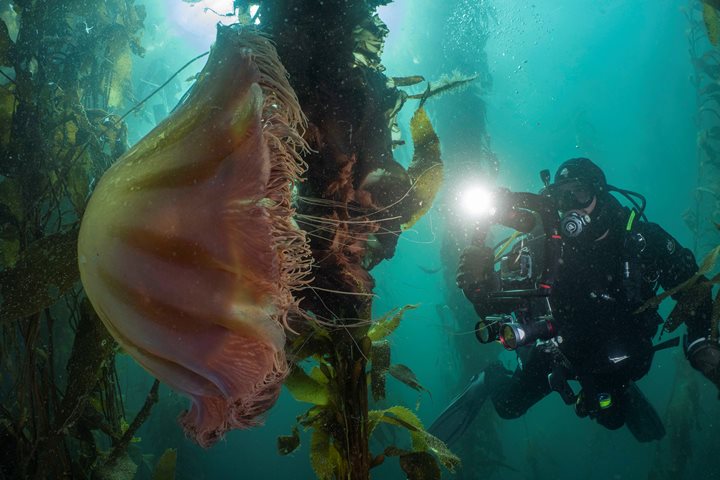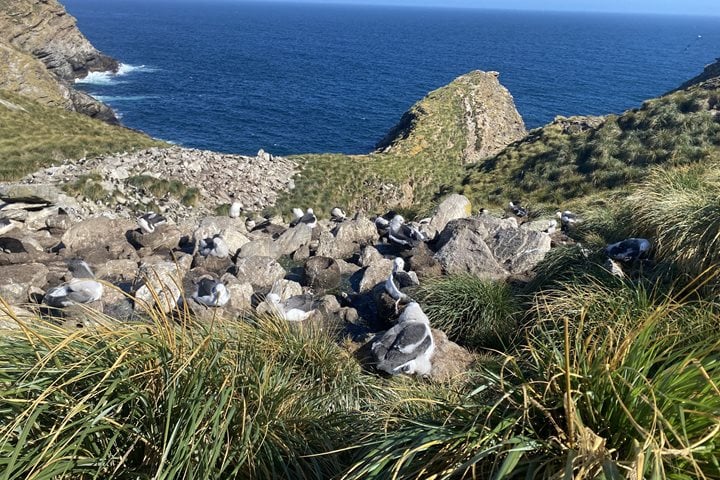Katabatikos is the Greek word for “going downhill”, or, “to descend.” After two days traveling down wind of the prevailing westerlies we arrived off the northeast coast of South Georgia this morning, our sights set on entering a landing called Right Whale Bay.
Shrouded beneath a heavy blanket of clouds, our first views of this fabled island began to emerge in pieces. Periodically shapes could be made out in the direction the charts said there should be land, only to dissolve, just as quickly, into skepticism as to whether we had actually seen them at all. Gradually these ephemeral sightings solidified into headlands, then valleys, then through the low clouds, Right Whale Bay itself and the island of South Georgia beyond.
While a scout party made it ashore soon after entering the bay, the winds that derive their name from katabatikos, (called katabatics locally), came plummeting down the post-glacial valley at the head of the bay, driving the scout party back to the safety of the National Geographic Explorer. Gusts reached 50 kilometers per hour and scattered williwaws and spume across the surface of the water. Fortunately the forecast suggested that the prevailing westerlies that had struck the windward (west) side of South Georgia – ascended her icy ridges, chilled at the top and came plummeting down the leeward side in concentrated blasts due to the heavy pressure gradient and narrow, glaciated path it was given – were forecast to slow down by the afternoon.
Taking our chances, we waited out the weather. In the meantime, the view from the bridge was spectacular. With the sun breaking out of the clouds, the surface of the ocean came alive. Every successive blast of wind ripped off the upper crust of the sea, sending spray adrift in a dazzle of white highlights.
Not long after lunch, just as hoped, the forecast held true, and attempt number two to set foot on solid ground for the first time in 2.5 days commenced. This time the weather was in our favor, as it remained so the rest of the day. Upon hitting the beach the stimuli didn’t diminish for a second. Groups of king penguins 15-20 strong were the first to greet us at the landing with an eager inquisitiveness suppressed only by our quick motions. As long as we moved slowly their interest was sustained and many close encounters were had within the first ten feet of the landing.
Next came the Antarctic fur seal pups. Some were merely a few weeks old but all, regardless of age, shared the instinct to bluff charge anything with a pulse. Lucky for them, they received 100+ new targets today and wasted no time testing what we were made of. Fortunately most of them weigh no more than 20 pounds and are far too cute to run away from anyway so failed attempt after failed attempt was the theme of the day for these puppy-like youngsters.
As if the sight of 8,000-10,000 king penguins, thousands of fur seal pups and a handful of southern elephant seals wasn’t enough, the late afternoon light, clearing skies, calm conditions and glaciated topography of South Georgia proved inspiring enough to stand alone. Yet, that’s the magic of South Georgia; every component tries to best the next until all you can do is sit back and shake your head at the spectacle of it all.

